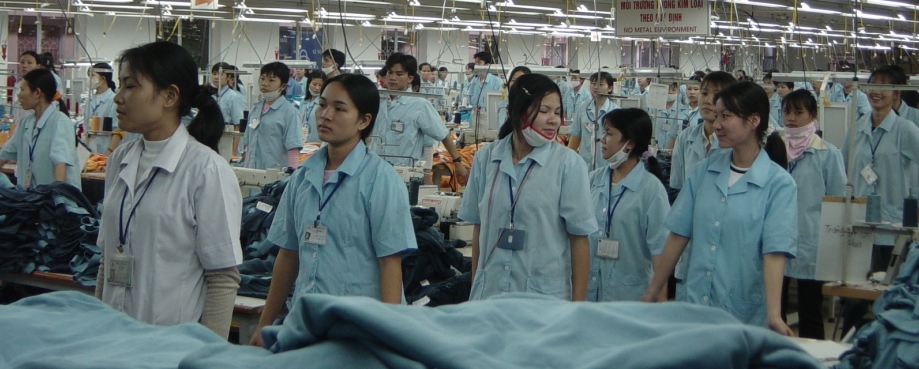
Our Industrial Relations Advisor, Beverley Hall, has just read the Global Deal's first report highlighting the critical role of social dialogue – workers, their representatives and managers talking respectfully with each other – in creating decent work. She’s particularly interested in the report's thinking on freedom of association and collective bargaining and is highly recommending it to brands and their suppliers.
Social dialogue is a “hot” topic at the moment.
In his opening address to this year’s International Labour Conference 2018, the ILO’s Director General Guy Ryder highlighted the strategic positioning of social dialogue in the delivery of Decent Work (SDG8) in the Sustainable Development Goals.
ETI has long been interested in the role of social dialogue within industrial relations and is committed to promoting and implementing models of social dialogue in the key sourcing sectors and countries in which members are active.
We are, for example, implementing a highly successful and popular programme in Bangladesh to improve dialogue between workers and management and build workers' ability to represent their needs.That's being expanded into Turkey, Myanmar and South Africa.
Earlier this year we also joined the Global Deal.
The Global Deal’s focus
The Global Deal’s focus is on the potential of social dialogue to help bring about decent work and reduce inequality (it was initiated by the Swedish Prime Minister Stefan Löfven together with the ILO and OECD).
Its first flagship report (co-authored by the ILO and OECD), Building trust in a changing world of work is excellent, but there's also a very readable bite size narrative about it, written by the ILO in the form of a press release. [Editor: the report outlines our work on page 126.]
Both are are well worth looking at and underline the strong business case to be made in favour of responsible business conduct and its different components, including due diligence and social dialogue.
Within that, as the ILO points out, headline takeaways stress the crucial nature of freedom of association and collective bargaining, and include:
- Collective bargaining can play a role in improving employment security, clarifying the employment relationship and the transition from temporary to regular employment.
- Inclusive and effective wage policies combine protective standards, such as minimum wages and limits on working time, and collective bargaining (participatory standards).
- The extension of collective agreements is a way to include migrant workers, workers in non-standard forms of employment and other vulnerable categories, such as small and medium-sized enterprises under the scope of negotiated labour protection and creates a level playing field for enterprises.
Expanding social dialogue
I’ll be sharing the findings across our membership and seeing what members can do to take forward the recommendations.
I also think a lot of people will be very interested in the third point on social dialogue and migrant workers. That definitely needs further exploration as it opens the social dialogue box on newer areas.
And, to quote the executive summary on the report as a whole, it: “stresses the critical role of freedom of association and different forms of social dialogue in spreading the benefits of globalisation by promoting decent work, job quality and inclusive growth.”
It makes clear that the "right policies can make all the difference to success."
